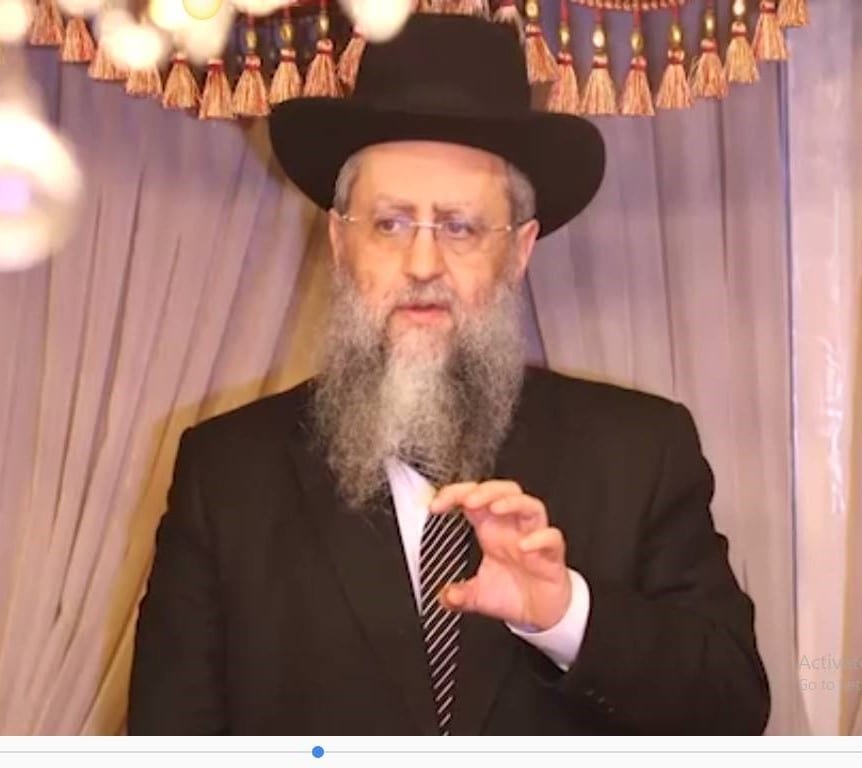Terach was the father of Avraham Avinu. He is briefly mentioned in the Torah in parashas Noach, but his actions and beliefs are discussed more in the Midrash. He was an avowed idol worshipper who at first did not appreciate his son’s rejection of his beliefs. He informed the evil King Nimrod of Avraham’s ‘’heretical” beliefs. After Avraham’s miraculous survival of Nimrod’s throwing him into the fiery furnace, it seems that Terach changed his ways. His father was Nachor, and he had three sons: Avraham, Nachor, and Haran. He lived for 205 years.
Terach is best known as the father of Avraham Avinu, but with regard to his own persona he is not generally viewed in a positive light. On deeper analysis, Chazal and the commentaries reveal that, as is always the case, a simplistic, “black and white” description does not suffice: For example, the Midrash tells us that he repented at the end of his life and as a result received a portion in the World to Come. Yet we do not relate to Terach as Avinu (our father), even though genetically he clearly is our ancestor. While it is understandable that we do not revere him, why do we not at least acknowledge our connection to him given that he did repent? To answer this question, is it necessary to examine his failings more closely and then compare them to the improvements he made in his later years.
It seems that it was the very trait in which Avraham excelled that Terach lacked: Avraham refused to follow the lifestyle of idol worship despite the immense social pressure to do so. Instead, he used the power of intellect to discern the truth, and then he lived by it at great personal risk. The famous midrash involving Terach and Avraham demonstrates Terach’s failings in this area. Terach owned an idol store and on one occasion asked Avraham to stay in the store. He destroyed all the idols except the largest and put a stick in its hand. When Terach returned, Avraham explained to him that the largest idol had destroyed the rest. Terach replied that Avraham was mocking him, because the idol could not act in such a way on its own. Avraham responded, “Do you hear what you mouth is saying?!” Avraham proved to him the fallacy of his own logic – he worships these idols yet asserts that they have no independence! At this point, Terach should have acknowledged the obvious merit of Avraham’s argument and changed his ways. However, he acted in the opposite fashion and handed Avraham over to Nimrod, who threw him into the fiery furnace! Terach demonstrated in this incident his inability to accept logical arguments as to the fallacy of his belief system. Unlike his son who broke away from the values that his society espoused, Terach adhered to idol worship with such blind faith that he was willing to have his own son killed! However, the final verses in parashas Noach indicate that Terach began the path to repentance.
The Torah states: “Terach took his son Avram, and Lot the son of Haran, his grandson, and his daughter-in-law Sarai, the wife of Avram his son, and they departed with them from Ur Kasdim to go to the land of Canaan; they arrived at Charan and settled there.” Terach decided to undergo the difficult journey to the land of Canaan. The sources offer different reasons for this momentous decision. Tanna d’Vei Eliyahu Zuta says that Terach was reacting to the incident at Ur Kasdim in which Nimrod had Avraham thrown into the fiery furnace. Terach realized that Avraham’s life was in grave danger, so he took him and his family far away. Maran, Rav Aryeh Yehudah Leib Shteinman, shlita, explains that after Terach saw the miracle of Avraham’s surviving the fire, he changed his ways and now strove to save his son. Therefore he took him away to remove him from the danger of remaining in Ur Kasdim. According to this explanation, Terach at least recognized the mistake of handing Avraham over to Nimrod, and now tried to rectify that by saving Avraham.
Seforno offers a different explanation, which suggests a deeper intention on Terach’s part. He writes that Terach saw that the land of Canaan was on a higher spiritual level than the rest of the world, and therefore he took the great step of leaving his home to try to reach this holy land. However, the Torah continues that once he reached Charan, he stopped there and did not continue on to Eretz Yisrael. Only Avraham himself completed the great journey and reached the Holy Land. Seforno does not explain why Terach stopped in Charan, but it is clear that he failed to complete the great journey he began.
Here we see the root of Terach’s failings: He finally recognized the correctness of Avraham’s arguments and ultimately repented, but he was unable to follow through with his newfound beliefs and complete the great physical and spiritual journey to Eretz Yisrael and all that it entailed. This perhaps explains why, despite his repentance, Terach never joined the ranks of “our fathers” and is not considered our spiritual ancestor. He was not an initiator, he was a slave to the values of his society, and even when, through the example of his son, he repented, he was unable to attain completion. He remained in Charan and remained a non-Jew. Perhaps it was because his repentance was not self-inspired that he lacked enough willpower to go through with his life changes to the fullest extent possible.
The example of Terach teaches us that it is insufficient for a person to merely follow the example of others for his inspiration and growth. He must be willing to develop his own relationship to HaShem and be prepared to put his full effort into the challenging path of spiritual growth.
From the book “Beacons of Light”





